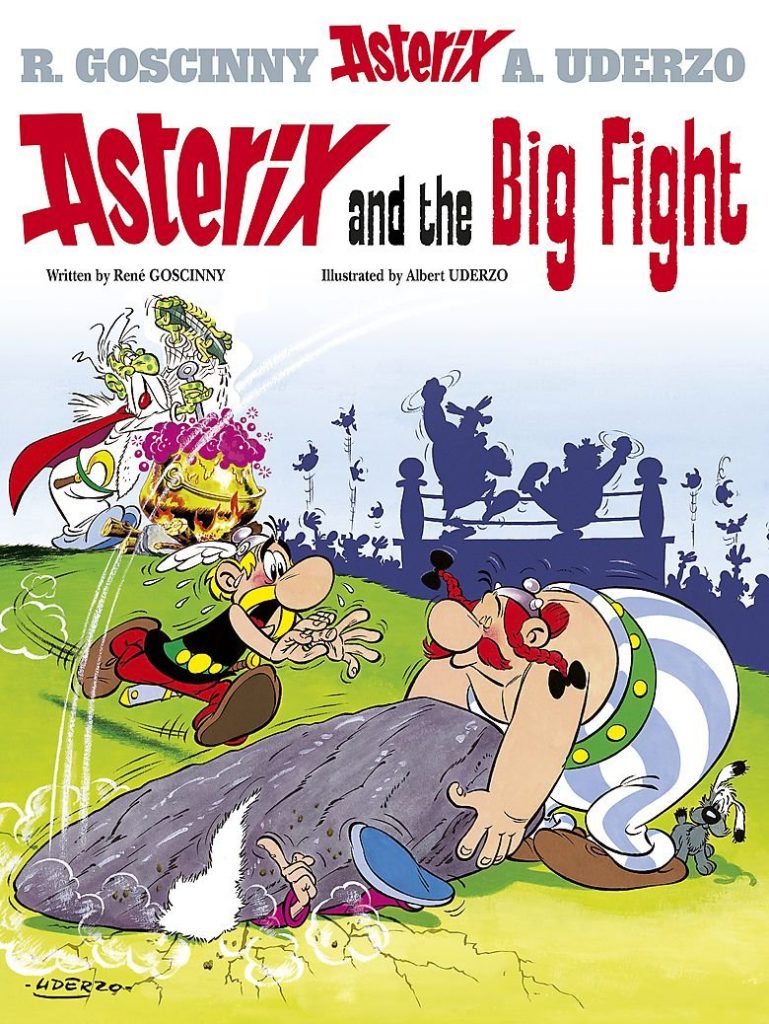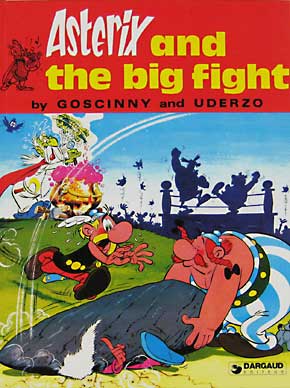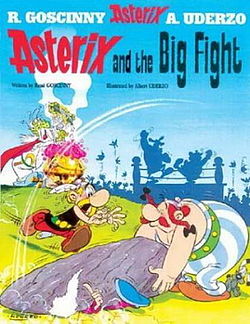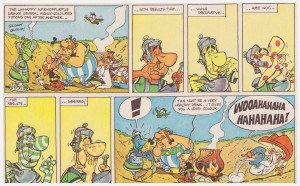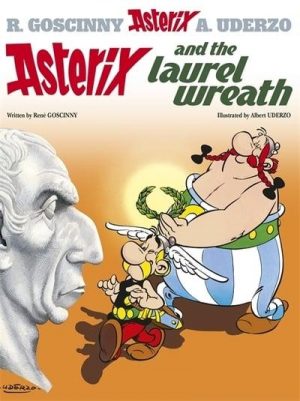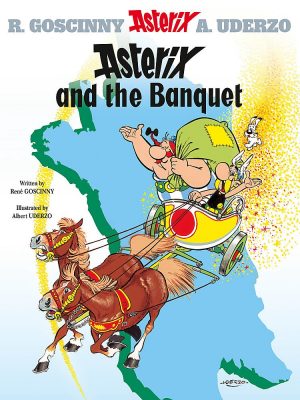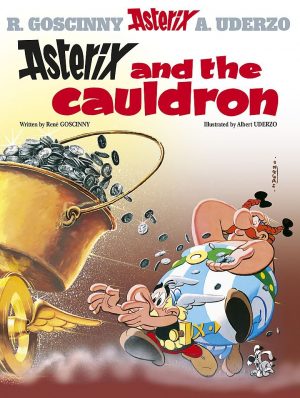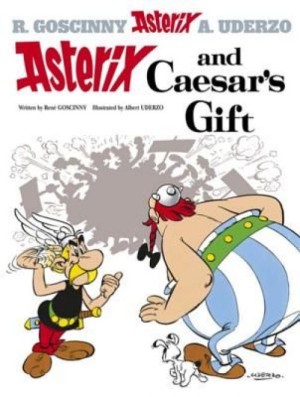Review by Andrew Littlefield
The magic potion that grants Asterix and his fellow tribe of villagers their superhuman strength is the most fantastic element of this long-running humour series by writer Rene Goscinny and artist Albert Uderzo. In Asterix and the Big Fight, the seventh Asterix volume, the potion takes centre stage when druid – and keeper of the potion’s secret formula – Getafix is rendered insensible by a stray menhir from Obelix. Without the potion, the inhabitants of the little Gaulish village are vulnerable to attack by their perpetual enemies the Romans, who plan to stage a boxing match (the big fight of the title) that will depose village chief Vitalstatistix in favour of a puppet leader of their choosing.
Known in French as The Battle of the Chiefs, Asterix and the Big Fight was first serialised in Pilote magazine in 1964 and collected into album form in 1966. Regular translators Anthea Bell and Derek Hockridge gave us their Anglicised version in 1971, which, as always, attempts to match Goscinny’s pun-strewn original French with equally groanworthy English puns of their own devising.
By 1964, Goscinny and Uderzo were entering their imperial phase with Asterix, when pretty much every volume they produced was an absolute knockout. The Big Fight is perhaps not up to the very highest standards of the series; it’s one of the broadest, most slapstick Asterix titles, and the plentiful action is confined to the village and its surroundings – no travelling to ‘foreign’ countries here. But it’s still a little marvel of tight comic narrative construction, and Uderzo clearly had a ball with the story’s most whimsical sequence, where an unfortunate Roman guinea pig is forced to test various potion substitutes prepared by the afflicted Getafix.
The greater emphasis on fantasy, and the talk of Roman puppet collaborators, reminds us that Asterix is in itself a great post-war fantasy of French resistance against invasion and domination, one where a potion is enough to see off even the most despicable tyrant. If only it were true.
